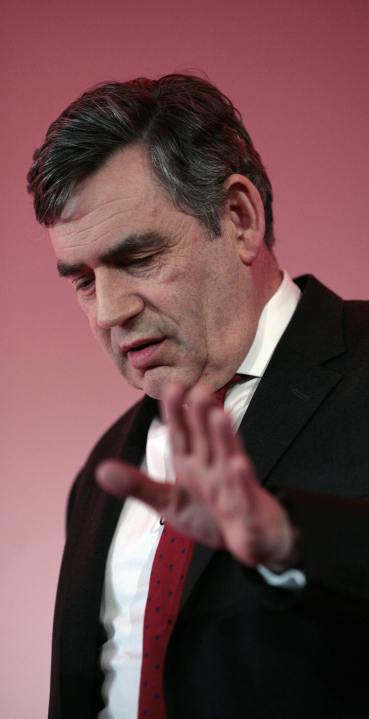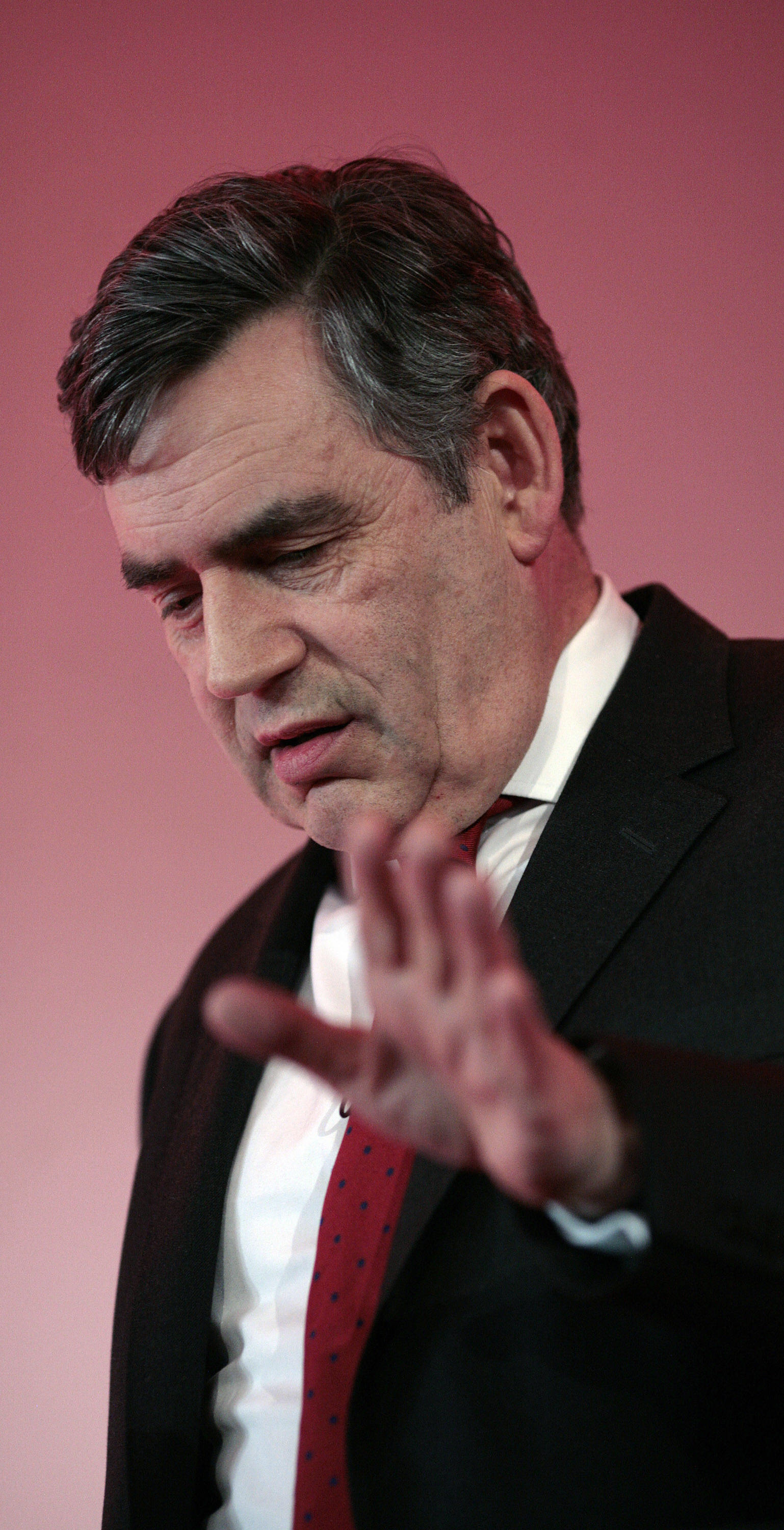 Gordon Brown doesn’t boast anymore about his friendship with Alan Greenspan – and little wonder. The former Fed Chairman’s name is fast becoming mud in America, as they turn on the man they lionised for more than a decade. America is about nine months ahead of the UK in the credit crunch, and what fascinates me is not just their take on the current situation but how they are revising their view of the last decade. What Greenspan called “prosperity” they now see as a debt binge and he is being blamed for fuelling the housing bubble now bursting with such calamitous consequences.
Gordon Brown doesn’t boast anymore about his friendship with Alan Greenspan – and little wonder. The former Fed Chairman’s name is fast becoming mud in America, as they turn on the man they lionised for more than a decade. America is about nine months ahead of the UK in the credit crunch, and what fascinates me is not just their take on the current situation but how they are revising their view of the last decade. What Greenspan called “prosperity” they now see as a debt binge and he is being blamed for fuelling the housing bubble now bursting with such calamitous consequences.
This should terrify Brown because the same charge will probably be applied to him. He was something of a Greenspan disciple – and was also lionised for what was then seen as prosperity and is now (as in America) seen as a bubble created by cheap debt and booming assets. But as repossessions soar in Britain, people will soon look back on the Brown years differently. In my News of the World column today (not online) I say his time at No11 may be known as a “reign of error”. One can (now) see five key mistakes.
1) He adopted the Tory inflation target of 2.5%, which was right for its time. But this was not designed to detect or deal with an asset bubble.
2) In instructing the Bank of England to deal in CPI rather than RPI he ordered it not to take notice of the housing market (RPI contains mortgage repayment costs, CPI does not). So rather than ask it to tackle house prices, he went the other way. This meant the bank kept interest rates way too low (the 2.0% CPI target is no substitute for a 2.5% RPI target as RPI is at least a full point ahead of CPI).
3) This meant money was too cheap. As night follows day, this led to an asset bubble.
4) Brown saw this as a one-off adjustment to a new era of low inflation and permanently cheap credit. He was a disciple of Greenspan, who thought we had entered a new era of productivity and could have cheap credit. This was a fatal misdiagnosis.
5) Brown was relaxed about Britain’s soaring debt-to-income ratios, and would angrily say that the soaring (bubble) assets somehow cancelled debt out. He either didn’t realise fully, or didn’t care about, how house prices were fuelling demand as everyone was borrowing against the made-up value of their property.
The phrase “equity withdrawal” is key to the bubble mentality that gripped Britain in the last six years. It was as if people thought their home was a bank machine. At one stage, this orgy of borrowed money accounted for £1 in every £4 spent on the high street. Mervyn King frequently warned about this – property prices are a matter of opinion, he would say, debt is real. We are finding this out to our cost now. Cheap money sent house prices to the stratosphere, people borrowed against their house, spent the proceeds, business borrowed to expand and haul in more of this “withdrawn equity”. As Michael Saunders, a Citibank analyst, so aptly put it this has not left Britain with a real economy but a “pyramid of debt, built upon debt.”
But the bubble housing prices hauled in stamp duty tax and equity withdrawal held up consumer spending, so Brown did not complain. As his unfunded spending commitments (aka deficit) of £37bn a year testify, he is leaving this to tomorrow’s taxpayers to fund. His Enron approach to debt is appallingly short-termist. It was as if he didn’t care about tomorrow’s bust, as long as he soaked up credit for today’s boom (all the time calling it “stability”).
We are slowly realising this now. As I say in the NOTW, it’s like waking up with a hangover – and having the camera in your head play back all the daft things you did the night before. That “really funny” prank, when you “subtly” chatted up your colleague. You groan. So, too, will Brits now stat looking at that small flat they bought for four times their salary, those 125% mortgages, those £20,000 garages, the years they spent opening a new Visa account to may off their Mastercard debt and doing it again before the six-month 0% interest ran out. The consumer has been running on empty. Like the road runner going off the cliff, we are only now looking down.
And in fairness to Brown, I didn’t hear too many Tories say “this is a bubble” or offer the above analysis. Greenspan defended himself by saying a bubble is only clear once it bursts. So this becomes clear in retrospect. But the Tories need worry: if the public think they’ve been conned they will take their vengeance at the ballot box. Greenspan is being denounced in America from his position as an ex-Fed chairman (unlike Brown, he admits there was a housing bubble) . Brown is in No10, a lightening rod to conduct the anger of the Brits who feel he led them into what George Bridges described as the biggest orgy of debt creation in British peacetime history. Look around you – how much of the “prosperity” is on borrowed money?
Conventional wisdom can change quickly and emphatically in economics. When Labour came to power, everyone hailed the Asian Tiger model until it went bust. Then everyone said it was obviously doomed from the start. Greenspan is being reappraised now. Brown will be next. George Osborne is giving a speech in London tomorrow, so let’s see his take.








Comments